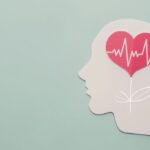Feeling agitated or restless, having trouble falling asleep, or having an urgent need to leave somewhere? These are some of the most typical signs and symptoms of anxiety, which is the most prevalent mental ailment in the country.1 but did you know that some foods might actually lessen the effects of anxiety?
What is Anxiety?
Around the world, anxiety affects people of different ages, genders, and nationalities. While anxiety might be situational at times, such as before a public speaking engagement or a test, it can also be more pervasive in a person’s life at other times. Generalized anxiety disorder (GAD) is frequently the cause of anxiety symptoms that persist for a longer period of time than just the occasional worry.
Compared to someone who only has situational worries or concerns, someone with GAD spends a lot more time worrying about things. “A person with GAD typically worries 3 to 10 hours per day, compared to a healthy individual who may worry up to an hour per day.
Typical signs of physical and psychological anxiousness include:
- heightened receptivity to feedback
- Uncomfortable or self-conscious feelings
- general dread or anxiety
- difficulty paying attention
- bad memory
- Hyper vigilance
- Unreasonable judgment
- stomach pain
- Pains and aches in the body
- Restlessness
- higher heart rate
- heart flutters
- A sudden need to leave a situation when it feels like the walls are closing in
- Irritability
- Stuttering Perspiration
10 Foods to Reduce Anxiety
For the majority of anxious persons, drinking water frequently during the day is beneficial. Maintaining appropriate hydration improves our general health and well-being. In addition to drinking plenty of water, some foods can help reduce anxiety symptoms because they “spur the release of neurotransmitters such as serotonin and dopamine.”1
The following ten foods may lessen anxiety:
Fatty fish
The high Omega 3 and vitamin D content of fatty fish makes it a good source of nutrients that may help lower anxiety. Additionally, eating this food may have positive effects on mental health, such as an enhancement in memory and brain function.
Eggs
Eggs are a good source of vitamin D and tryptophan, an amino acid that supports serotonin, a hormone that regulates mood and sleep.
Dark Chocolate
Good news: chocolate has health benefits. Although it may seem paradoxical given that some chocolate contains caffeine, dark chocolate can actually help lessen anxiety symptoms due to the antioxidants it contains. But remember that it’s dark chocolate, not milk chocolate, which has more sugar in it.
Chamomile
For its relaxing effects, chamomile has been used for centuries. It can be consumed as tea before going to bed or during the day to promote calmness. Additionally, it is widely accessible in lotions, body washes, and other goods.
Cinnamon Seeds
They are well recognized for being high in potassium and zinc, two minerals that support the nervous system’s control and may therefore aid in regulating anxiety and stress symptoms.
Turmeric
The spice with the deep yellow hue that is frequently used in Indian and Southeast Asian cuisine has anti-anxiety qualities. An increase in curcumin, the primary component of turmeric, was proven in a 2015 study to reduce anxiety.
Swiss chard and spinach
Leafy greens like spinach and swiss chard are excellent additions to meals to help reduce anxiety and increase relaxation because they contain high quantities of magnesium, a dietary supplement that helps to promote muscular relaxation.
Yogurt
Since many varieties of yogurt contain probiotics, they aid in promoting health. Yogurt is also known to contain mood-enhancing substances including serotonin, which supports mental health.
Green Tea
Green Tea Green tea has been consumed for thousands of years because it contains antioxidants and other nutrients that are good for the brain and memory.
Citrus-based foods
Oranges and blueberries, two foods rich in vitamin C, are also rich in antioxidants, which have been demonstrated to reduce inflammation and advance well health. Additionally demonstrated to aid in the lessening of anxiety symptoms is vitamin C.
How Does Anxiety Get Treat?
Many people who suffer from anxiety disorders can benefit from natural anxiety treatments like dietary and lifestyle modifications. Therapy is the first line of treatment in addition to these and is often highly successful. However, occasionally people discover that they require additional anxiety treatment strategies, such as pharmaceuticals, particularly if their anxiety symptoms become intolerable.



